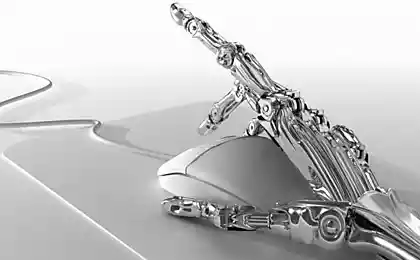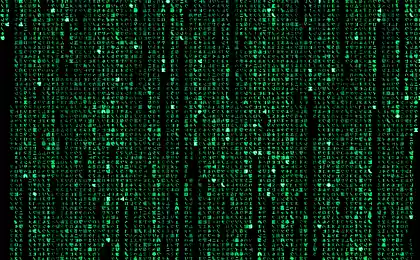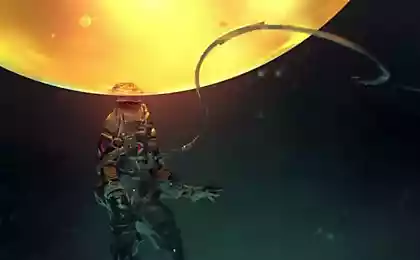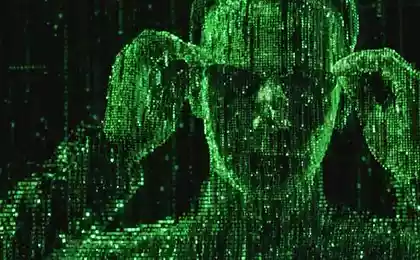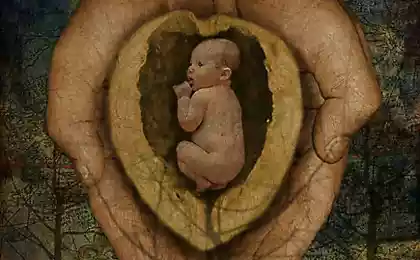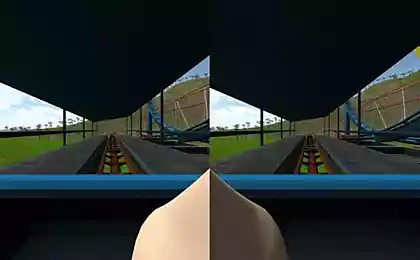797
Nick Bostrom: We are almost certainly living in a computer simulation.
Almost every viewer of "the Matrix" at least for a second or couple of seconds allows the possibility that he may actually live in the Matrix. A philosopher from Yale University, Nick Bostrom also considers this possibility and concludes that it is much more probable than you could possibly imagine.
Proof by simulation
"The matrix" introduces us to a strange and horrific scenario. Humanity lies in a coma in some cocoons, and every detail of reality is determined and controlled by hostile computers.
For most people, this scenario is interesting as a technique of science fiction, is incredibly far from anything that exists today or is likely to appear in the future. However, after careful deliberation, such a scenario no longer seem unthinkable. It is very likely.
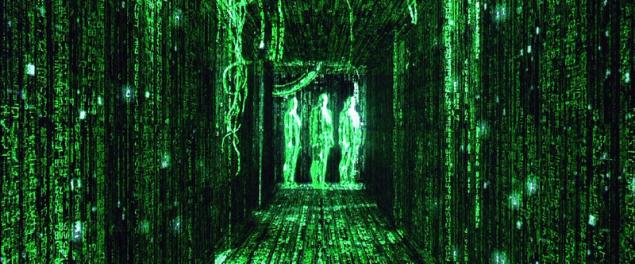
In one of his articles ray Kurzweil discusses the observed trend in the development of computing power at an ever increasing speed. According to forecasts Kurzweil, virtually unlimited computing power will become available over the next fifty years. Let's assume that Kurzweil right and sooner or later humanity will create virtually limitless computing power. For the purposes of this discussion no matter when it happens. These developments may take a hundred, a thousand or a million years.
As noted in the article Kurzweil, limitless computing capabilities will expand the ability of humanity to an incredible degree. This civilization will become "post-human" and is capable of extraordinary technological achievements.
Post-human civilization can take various forms. It may be in many ways similar to our modern civilisation or radically different. Of course, it is almost impossible to predict how it will develop such a civilization. But we know that the Posthuman civilization will have access to almost infinite computing power.
Posthuman civilization might be able to convert planets and other astronomical objects in heavy-duty computers. At the moment it is difficult to identify with certainty the "ceiling" of those computing facilities which may be available to Posthuman civilizations.
1. This article presents the proof method of simulation according to which at least one of the following statements is true: it is highly likely that as a species mankind will begin to disappear from the face of the earth before reaching a "Posthuman" stage.
2. Very unlikely that any Posthuman civilization will run a large number of simulations (models),simulating its evolutionary history (or, consequently, variants of this story).
3. We are almost certainly living in a computer simulation.
Let's consider these three statements in turn.
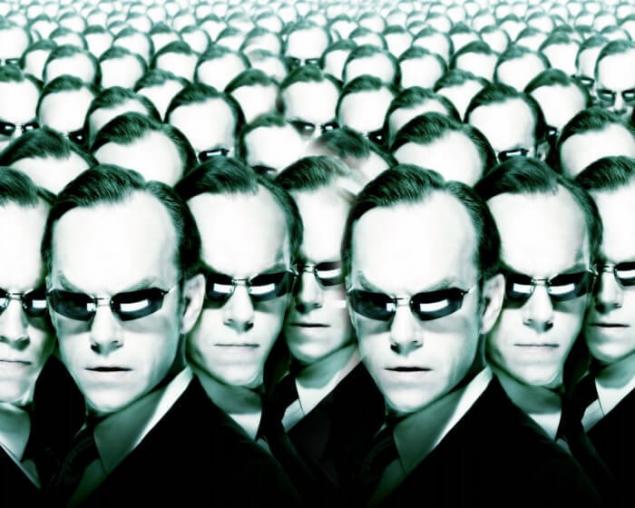
The first statement directly: if we destroy ourselves through nuclear war, biological catastrophe or a nanotechnology disaster, the remaining items of this evidence are irrelevant. However, let's assume that this is not true, and therefore we will be able to avoid self-destruction and join the post-human era.
The essence of human civilization in terms of the Posthuman era, it is impossible to imagine in its entirety. Similarly, it is impossible to imagine a variety of ways to use virtually unlimited computing power. But let's look at one of them — the creation of complex simulations of human civilization.
Imagine historians of the future, simulating various scenarios of historical development. It will not be the current simplified models. Given the enormous computational capabilities that will have these historians, in their possession can be very detailed simulations, which will be visible in every building, every geographical detail, every person. And each of these individuals will be endowed with the same level of computing power, complexity and intelligence, as a living person. Like agent Smith, they will be created based on the software, but will have the mental characteristics of the person. Of course, they may never realize that you are the program. To create an accurate model, you will need to make a perception of simulated individuals is indistinguishable from the perception of people living in the real world.
Like the inhabitants of the Matrix, these people will exist in an artificial world, believing it to be real. Unlike the scenario Matrix these people will consist entirely of computer programs.
However, whether these artificial personality real "people"? Will they be reasonable regardless of their level of computing power? Will they be conscious?
Reality is something that no one actually does not know. However, philosophers who study consciousness, usually make an assumption about its "independence from the substrate". Essentially, this means that consciousness may depend on many things — from knowledge and intelligence (processing power), mental organizations, individual parts of the logical structure, etc. — but one of the conditions, which for consciousness is not required, is biological tissue. The embodiment of consciousness in carbon-based biological neural networks — this is not a necessary property of it. In principle, the same effect can be achieved from a silicon-based processors built into the computer.
Many people familiar with modern computer technology, the idea about the software, endowed with consciousness, it seems incredible. However, this intuitive mistrust is a product of the relatively paltry capabilities of today's computers. Thanks to the ongoing improvement of their computers and software computers will become increasingly intelligent and conscious. In fact, given the human propensity to animate everything that even remotely looked like a man, people might start to give computers consciousness long before it becomes a reality.
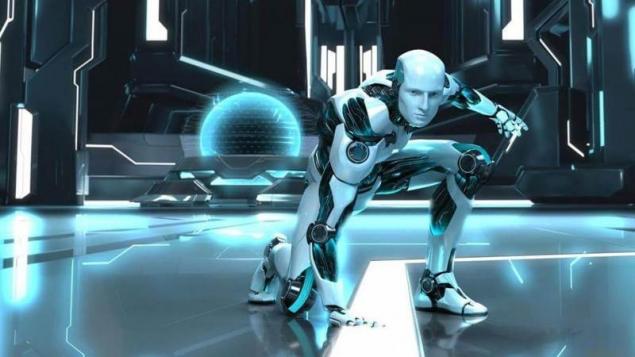
The arguments in favor of "independence from the substrate" set forth in the relevant philosophical literature, and I won't try to reproduce them in this article. However, I will point out that this assumption is reasonable. The brain cell is a physical object having certain characteristics. If we come to a full understanding of these characteristics and learn to reproduce them electronically, then, without doubt, our electronic brain cell will be able to perform the same functions as a cell of organic origin. And if this can be done with one brain cell, why not to repeat the same operation with a whole brain? And if so, why would the resulting system does not have the same consciousness as a living brain?
These assumptions are very curious. Having enough compute capacity postlude can create models of historical personalities, who will have full consciousness and who consider themselves to be biological people living in an earlier time. This conclusion brings us to statement number two.
The first statement assumes that we will live long enough to create a post-human civilization. This Posthuman civilization will have the opportunity to develop a simulated reality like the Matrix. In the second statement reflects the possibility that postlude decide not to develop these models.
We can imagine that, in a Posthuman era, the interest in developing historical simulations will disappear. This means significant changes in people's motivation post-human era, because nowadays, of course, there are many people who'd want to run the model of previous eras, if they could afford to do it. However, probably many of our human desires seem silly to any Posthuman. Maybe simulations of the past will be of little scientific value for post-human civilization (which is not so incredibly, given its disparate intellectual superiority), and maybe postlude will consider entertainment a very inefficient way of getting pleasure, which can be obtained much easier by means of direct stimulation of the pleasure centers of the brain. This finding suggests that Posthuman societies will be very different from the human: they will not be relatively wealthy and independent entities, possessing the fullness of human desires and free to act under their influence.
In another scenario, perhaps, some postlude may want to run simulations of the past, however post-human laws will prevent them to do so. That will lead to the adoption of such laws? We can assume that more advanced civilizations are on the path that leads them to the recognition of an ethical prohibition on run models that simulate historical past, because of the suffering that will befall the heroes of this model. However, from our current perspective it is not obvious that the creation of the human race is immoral action. On the contrary, we are inclined to consider the existence of our race by the process of great ethical values. Moreover, one of the existence of ethical beliefs about the immorality of running simulations of the past is not enough. To it should be added the existence of such social structures in a civilizational scale, which effectively prohibit activities deemed immoral.
So, since there is a possibility that the second statement is true, in this case motivation postlude or will be radically different from the motivations of the people or postlude will have to impose a total ban on simulations of the past and effectively monitor the effect of this ban. Moreover, this conclusion needs to be fair for almost all Posthuman civilizations in the Universe.
Therefore, we need to consider the following possibility: it is possible that human civilizations have a chance to become Posthuman; next: at least some post-human civilizations will find individuals who will run simulations of the past. This brings us to our third statement: we are almost certainly living in a computer simulation. To this conclusion we come quite naturally.
If postlude run simulations of the past, it is likely that these simulations operate on a very large scale. It is not difficult to imagine millions of individuals, triggering thousands of variants of simulations on hundreds of different topics, and in each such simulation will involve billions of simulated individuals. These artificial people typed a trillion. They will assume that they are real and live in an earlier time.
In 2003, the planet is approximately six billion biological humans. It is even possible that in the Posthuman era, the trillions created based on computer programs people will live modeled for them in 2003, convinced that they are of biological origin — exactly the same as you and me. Math is easy as ABC: the vast majority of these people are mistaken; they believe that they are of flesh and blood, but actually they are not. There is no reason to exclude our civilization from these calculations. Almost all chances are that our physical bodies are an illusion of computer.
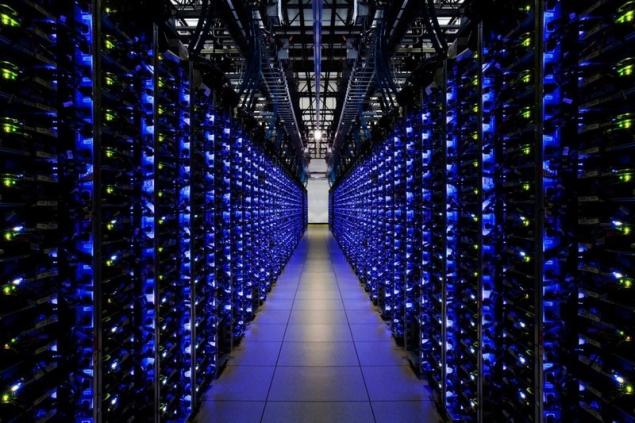
It is worth emphasizing that the proof method of simulation does not aim to show that we live in a computer simulation. It reflects only that at least one of the three above statements is true. If someone does not agree with the conclusion that we are inside a simulation, then instead he would have to agree either with the fact that almost all post-human civilizations will refuse to run simulations of the past, or with what, probably, we will start to become extinct before reaching the Posthuman era.
Our extinction might happen as a result of the stabilization of the current progress in computing or be a consequence of the General collapse of civilization. Either you must recognize that scientific and technological progress, is likely to gain momentum, not to stabilize, and in this case you would predict that the acceleration of progress will cause our extinction. To bring us to this sad end may, for example, molecular nanotechnology. Reaching advanced stage, it will create a self-replicating nanobots capable of feeding on dust and organic matter, a kind of mechanical bacteria. These nanobots, if they are created with bad intentions, can cause the extinction of all life on our planet. Elsewhere I have tried to list the major existential threats to humanity.
If our civilization is indeed a simulation, hence does not arise any need to limit our progress. It is not excluded that simulated civilizations to become Posthuman can. Then they can run their own simulations of the past, using powerful computers that they create in their artificial Universe. Such computers would be "virtual machines", the term familiar to modern computing. (For example, Java-based web applications use the virtual machine — a simulated computer — inside your desktop.)
Virtual machines can be combined into a single package: you can simulate a machine simulating another machine, etc., in this iteration step can be arbitrarily many. If we are to succeed in creating our own models of the past, this is strong evidence against the second and third claims, so that we perforce have to conclude that we live in a simulated world. Moreover, we must suspect that postlude control model of our world, are artificially created beings, and their creators, in turn, can also be simulated.
Thus, the reality may be tiered (this theme was touched upon in many science fiction works, especially in the movie "the Thirteenth floor"). Even if a hierarchical structure at some stage you need to focus on myself — although the metaphysical status of this claim is not entirely clear — it can accommodate a huge number of levels of reality, and over time this number may increase. (One of the arguments against multi-level hypothesis is that the cost of computing resources for the base models will be very large. Modeling even a single Posthuman civilization might be prohibitively expensive. If so, then we should expect the destruction of our model when approaching post-human era.)
Despite the fact that all the elements of such a system may be natural, even material, you can spend some free Parallels with religious ideas about the world. In a sense, postlude running a simulation are like gods in relation to the people inhabiting the simulation:
However, all the demigods except those at the basic level of reality are subject to the orders of the more powerful gods living at deeper levels.
Further reflections on this theme can reach its climax in a naturalistic Theogony that would study the structure of this hierarchy and the restrictions imposed on its citizens based on the possibility that some actions on their level can result in some reaction from inhabitants of deeper levels. For example, if no one can be sure that is the base of the hierarchy, anyone should consider the possibility that for any action he may be rewarded or punished by the creators of the model.
Perhaps the latter will thus be guided by moral criteria. Life after death will become a real possibility as reincarnation. Because of this fundamental uncertainty, perhaps even the civilization are the reasons to behave impeccably from the point of view of morality. The fact that even this civilization will have to be in compliance with the rules of morality, of course, will cause an even greater extent all others to aspire to behave similarly, and so on. Will the real virtuous circle. Perhaps everyone will be guided by a kind of universal moral imperative, to obey which would be in the interests of everyone, because this imperative appeared "out of nowhere".
In addition to the models of the past, you can also consider the creation of more selective simulations involving only a small group of people or a single person. In this case, the remaining part of humanity will turn into zombie people or the shadow people — people who modeled at a level sufficient for the fully simulated people not to notice anything suspicious. It is not clear how the modeling of the shadow people will be cheaper than a simulation full of people. It is not clear that a creature can behave indistinguishable from a real person and at the same time to be deprived of conscious experience.
Even if these separate models exist, one should not assume that you are one of them, until you come to the conclusion that they are much more numerous than the full model. To the notional personality was in I-simulation (a model that simulates the life of a single mind), I simulations would require a hundred billion times more than simulations of the past.
There is also the possibility that the creators of simulations will remove certain points of the mental lives of simulated beings and will provide them a false memory about certain experiences that they usually experienced during removed from memory moments. In this case, you can consider the following (farfetched) solution to the problem of evil: is actually suffering in the world exist, and all memories of him is an illusion. Of course, this hypothesis can be taken seriously only when you are suffering.
If we assume that we live in a simulation, then what does that mean for us humans?
Despite the concerns expressed above, the consequences are not so drastic. The standard empirical study of the Universe which we see, will tell us how to act our Posthuman creators, arranging our world. The revision of most of our beliefs will lead to a fairly minor and barely noticeable results is directly proportional to the lack of confidence in our ability to understand the logic postlude. So properly understood the truth contained in the third statement, should not "crazy" or to prevent us from continue to do their business and also to plan and predict the future.
If we know more about the motivations postlude and restrictions on the amount of resources — and that can happen as a result of our own movement toward a post-human civilization — in this case, the hypothesis that we modeled, will have a far more rich set of empirical implications.
Also interesting: the 6 Grand illusions that keep us enslaved to the Matrix
Matrix: an unknown ending
Of course, if the sad reality still is that we are a simulation created by some post-human civilization, we can assume that we had the best share, than the inhabitants of the Matrix. Instead of falling into the clutches of a hostile AI and to be used as energy source for its existence, we were created on the basis of computer programs as part of a research project.
Or maybe we were created by some teenage girl from a post-human civilization, doing homework.
However, we are still better than the inhabitants of the Matrix. Isn't it? published
P. S. And remember, just changing your mind — together we change the world! ©
Source: alt-future.narod.ru/Future/bostrom3.htm
Proof by simulation
"The matrix" introduces us to a strange and horrific scenario. Humanity lies in a coma in some cocoons, and every detail of reality is determined and controlled by hostile computers.
For most people, this scenario is interesting as a technique of science fiction, is incredibly far from anything that exists today or is likely to appear in the future. However, after careful deliberation, such a scenario no longer seem unthinkable. It is very likely.

In one of his articles ray Kurzweil discusses the observed trend in the development of computing power at an ever increasing speed. According to forecasts Kurzweil, virtually unlimited computing power will become available over the next fifty years. Let's assume that Kurzweil right and sooner or later humanity will create virtually limitless computing power. For the purposes of this discussion no matter when it happens. These developments may take a hundred, a thousand or a million years.
As noted in the article Kurzweil, limitless computing capabilities will expand the ability of humanity to an incredible degree. This civilization will become "post-human" and is capable of extraordinary technological achievements.
Post-human civilization can take various forms. It may be in many ways similar to our modern civilisation or radically different. Of course, it is almost impossible to predict how it will develop such a civilization. But we know that the Posthuman civilization will have access to almost infinite computing power.
Posthuman civilization might be able to convert planets and other astronomical objects in heavy-duty computers. At the moment it is difficult to identify with certainty the "ceiling" of those computing facilities which may be available to Posthuman civilizations.
1. This article presents the proof method of simulation according to which at least one of the following statements is true: it is highly likely that as a species mankind will begin to disappear from the face of the earth before reaching a "Posthuman" stage.
2. Very unlikely that any Posthuman civilization will run a large number of simulations (models),simulating its evolutionary history (or, consequently, variants of this story).
3. We are almost certainly living in a computer simulation.
Let's consider these three statements in turn.

The first statement directly: if we destroy ourselves through nuclear war, biological catastrophe or a nanotechnology disaster, the remaining items of this evidence are irrelevant. However, let's assume that this is not true, and therefore we will be able to avoid self-destruction and join the post-human era.
The essence of human civilization in terms of the Posthuman era, it is impossible to imagine in its entirety. Similarly, it is impossible to imagine a variety of ways to use virtually unlimited computing power. But let's look at one of them — the creation of complex simulations of human civilization.
Imagine historians of the future, simulating various scenarios of historical development. It will not be the current simplified models. Given the enormous computational capabilities that will have these historians, in their possession can be very detailed simulations, which will be visible in every building, every geographical detail, every person. And each of these individuals will be endowed with the same level of computing power, complexity and intelligence, as a living person. Like agent Smith, they will be created based on the software, but will have the mental characteristics of the person. Of course, they may never realize that you are the program. To create an accurate model, you will need to make a perception of simulated individuals is indistinguishable from the perception of people living in the real world.
Like the inhabitants of the Matrix, these people will exist in an artificial world, believing it to be real. Unlike the scenario Matrix these people will consist entirely of computer programs.
However, whether these artificial personality real "people"? Will they be reasonable regardless of their level of computing power? Will they be conscious?
Reality is something that no one actually does not know. However, philosophers who study consciousness, usually make an assumption about its "independence from the substrate". Essentially, this means that consciousness may depend on many things — from knowledge and intelligence (processing power), mental organizations, individual parts of the logical structure, etc. — but one of the conditions, which for consciousness is not required, is biological tissue. The embodiment of consciousness in carbon-based biological neural networks — this is not a necessary property of it. In principle, the same effect can be achieved from a silicon-based processors built into the computer.
Many people familiar with modern computer technology, the idea about the software, endowed with consciousness, it seems incredible. However, this intuitive mistrust is a product of the relatively paltry capabilities of today's computers. Thanks to the ongoing improvement of their computers and software computers will become increasingly intelligent and conscious. In fact, given the human propensity to animate everything that even remotely looked like a man, people might start to give computers consciousness long before it becomes a reality.

The arguments in favor of "independence from the substrate" set forth in the relevant philosophical literature, and I won't try to reproduce them in this article. However, I will point out that this assumption is reasonable. The brain cell is a physical object having certain characteristics. If we come to a full understanding of these characteristics and learn to reproduce them electronically, then, without doubt, our electronic brain cell will be able to perform the same functions as a cell of organic origin. And if this can be done with one brain cell, why not to repeat the same operation with a whole brain? And if so, why would the resulting system does not have the same consciousness as a living brain?
These assumptions are very curious. Having enough compute capacity postlude can create models of historical personalities, who will have full consciousness and who consider themselves to be biological people living in an earlier time. This conclusion brings us to statement number two.
The first statement assumes that we will live long enough to create a post-human civilization. This Posthuman civilization will have the opportunity to develop a simulated reality like the Matrix. In the second statement reflects the possibility that postlude decide not to develop these models.
We can imagine that, in a Posthuman era, the interest in developing historical simulations will disappear. This means significant changes in people's motivation post-human era, because nowadays, of course, there are many people who'd want to run the model of previous eras, if they could afford to do it. However, probably many of our human desires seem silly to any Posthuman. Maybe simulations of the past will be of little scientific value for post-human civilization (which is not so incredibly, given its disparate intellectual superiority), and maybe postlude will consider entertainment a very inefficient way of getting pleasure, which can be obtained much easier by means of direct stimulation of the pleasure centers of the brain. This finding suggests that Posthuman societies will be very different from the human: they will not be relatively wealthy and independent entities, possessing the fullness of human desires and free to act under their influence.
In another scenario, perhaps, some postlude may want to run simulations of the past, however post-human laws will prevent them to do so. That will lead to the adoption of such laws? We can assume that more advanced civilizations are on the path that leads them to the recognition of an ethical prohibition on run models that simulate historical past, because of the suffering that will befall the heroes of this model. However, from our current perspective it is not obvious that the creation of the human race is immoral action. On the contrary, we are inclined to consider the existence of our race by the process of great ethical values. Moreover, one of the existence of ethical beliefs about the immorality of running simulations of the past is not enough. To it should be added the existence of such social structures in a civilizational scale, which effectively prohibit activities deemed immoral.
So, since there is a possibility that the second statement is true, in this case motivation postlude or will be radically different from the motivations of the people or postlude will have to impose a total ban on simulations of the past and effectively monitor the effect of this ban. Moreover, this conclusion needs to be fair for almost all Posthuman civilizations in the Universe.
Therefore, we need to consider the following possibility: it is possible that human civilizations have a chance to become Posthuman; next: at least some post-human civilizations will find individuals who will run simulations of the past. This brings us to our third statement: we are almost certainly living in a computer simulation. To this conclusion we come quite naturally.
If postlude run simulations of the past, it is likely that these simulations operate on a very large scale. It is not difficult to imagine millions of individuals, triggering thousands of variants of simulations on hundreds of different topics, and in each such simulation will involve billions of simulated individuals. These artificial people typed a trillion. They will assume that they are real and live in an earlier time.
In 2003, the planet is approximately six billion biological humans. It is even possible that in the Posthuman era, the trillions created based on computer programs people will live modeled for them in 2003, convinced that they are of biological origin — exactly the same as you and me. Math is easy as ABC: the vast majority of these people are mistaken; they believe that they are of flesh and blood, but actually they are not. There is no reason to exclude our civilization from these calculations. Almost all chances are that our physical bodies are an illusion of computer.

It is worth emphasizing that the proof method of simulation does not aim to show that we live in a computer simulation. It reflects only that at least one of the three above statements is true. If someone does not agree with the conclusion that we are inside a simulation, then instead he would have to agree either with the fact that almost all post-human civilizations will refuse to run simulations of the past, or with what, probably, we will start to become extinct before reaching the Posthuman era.
Our extinction might happen as a result of the stabilization of the current progress in computing or be a consequence of the General collapse of civilization. Either you must recognize that scientific and technological progress, is likely to gain momentum, not to stabilize, and in this case you would predict that the acceleration of progress will cause our extinction. To bring us to this sad end may, for example, molecular nanotechnology. Reaching advanced stage, it will create a self-replicating nanobots capable of feeding on dust and organic matter, a kind of mechanical bacteria. These nanobots, if they are created with bad intentions, can cause the extinction of all life on our planet. Elsewhere I have tried to list the major existential threats to humanity.
If our civilization is indeed a simulation, hence does not arise any need to limit our progress. It is not excluded that simulated civilizations to become Posthuman can. Then they can run their own simulations of the past, using powerful computers that they create in their artificial Universe. Such computers would be "virtual machines", the term familiar to modern computing. (For example, Java-based web applications use the virtual machine — a simulated computer — inside your desktop.)
Virtual machines can be combined into a single package: you can simulate a machine simulating another machine, etc., in this iteration step can be arbitrarily many. If we are to succeed in creating our own models of the past, this is strong evidence against the second and third claims, so that we perforce have to conclude that we live in a simulated world. Moreover, we must suspect that postlude control model of our world, are artificially created beings, and their creators, in turn, can also be simulated.
Thus, the reality may be tiered (this theme was touched upon in many science fiction works, especially in the movie "the Thirteenth floor"). Even if a hierarchical structure at some stage you need to focus on myself — although the metaphysical status of this claim is not entirely clear — it can accommodate a huge number of levels of reality, and over time this number may increase. (One of the arguments against multi-level hypothesis is that the cost of computing resources for the base models will be very large. Modeling even a single Posthuman civilization might be prohibitively expensive. If so, then we should expect the destruction of our model when approaching post-human era.)
Despite the fact that all the elements of such a system may be natural, even material, you can spend some free Parallels with religious ideas about the world. In a sense, postlude running a simulation are like gods in relation to the people inhabiting the simulation:
- postlude created the world around us;
- their level of intelligence far superior to ours;
- they are "omnipotent" in the sense that it can intervene in the life of our world even in ways that violate its physical laws;
- in addition, they are "omniscient" in the sense that they can observe everything that is happening.
However, all the demigods except those at the basic level of reality are subject to the orders of the more powerful gods living at deeper levels.
Further reflections on this theme can reach its climax in a naturalistic Theogony that would study the structure of this hierarchy and the restrictions imposed on its citizens based on the possibility that some actions on their level can result in some reaction from inhabitants of deeper levels. For example, if no one can be sure that is the base of the hierarchy, anyone should consider the possibility that for any action he may be rewarded or punished by the creators of the model.
Perhaps the latter will thus be guided by moral criteria. Life after death will become a real possibility as reincarnation. Because of this fundamental uncertainty, perhaps even the civilization are the reasons to behave impeccably from the point of view of morality. The fact that even this civilization will have to be in compliance with the rules of morality, of course, will cause an even greater extent all others to aspire to behave similarly, and so on. Will the real virtuous circle. Perhaps everyone will be guided by a kind of universal moral imperative, to obey which would be in the interests of everyone, because this imperative appeared "out of nowhere".
In addition to the models of the past, you can also consider the creation of more selective simulations involving only a small group of people or a single person. In this case, the remaining part of humanity will turn into zombie people or the shadow people — people who modeled at a level sufficient for the fully simulated people not to notice anything suspicious. It is not clear how the modeling of the shadow people will be cheaper than a simulation full of people. It is not clear that a creature can behave indistinguishable from a real person and at the same time to be deprived of conscious experience.
Even if these separate models exist, one should not assume that you are one of them, until you come to the conclusion that they are much more numerous than the full model. To the notional personality was in I-simulation (a model that simulates the life of a single mind), I simulations would require a hundred billion times more than simulations of the past.
There is also the possibility that the creators of simulations will remove certain points of the mental lives of simulated beings and will provide them a false memory about certain experiences that they usually experienced during removed from memory moments. In this case, you can consider the following (farfetched) solution to the problem of evil: is actually suffering in the world exist, and all memories of him is an illusion. Of course, this hypothesis can be taken seriously only when you are suffering.
If we assume that we live in a simulation, then what does that mean for us humans?
Despite the concerns expressed above, the consequences are not so drastic. The standard empirical study of the Universe which we see, will tell us how to act our Posthuman creators, arranging our world. The revision of most of our beliefs will lead to a fairly minor and barely noticeable results is directly proportional to the lack of confidence in our ability to understand the logic postlude. So properly understood the truth contained in the third statement, should not "crazy" or to prevent us from continue to do their business and also to plan and predict the future.
If we know more about the motivations postlude and restrictions on the amount of resources — and that can happen as a result of our own movement toward a post-human civilization — in this case, the hypothesis that we modeled, will have a far more rich set of empirical implications.
Also interesting: the 6 Grand illusions that keep us enslaved to the Matrix
Matrix: an unknown ending
Of course, if the sad reality still is that we are a simulation created by some post-human civilization, we can assume that we had the best share, than the inhabitants of the Matrix. Instead of falling into the clutches of a hostile AI and to be used as energy source for its existence, we were created on the basis of computer programs as part of a research project.
Or maybe we were created by some teenage girl from a post-human civilization, doing homework.
However, we are still better than the inhabitants of the Matrix. Isn't it? published
P. S. And remember, just changing your mind — together we change the world! ©
Source: alt-future.narod.ru/Future/bostrom3.htm

